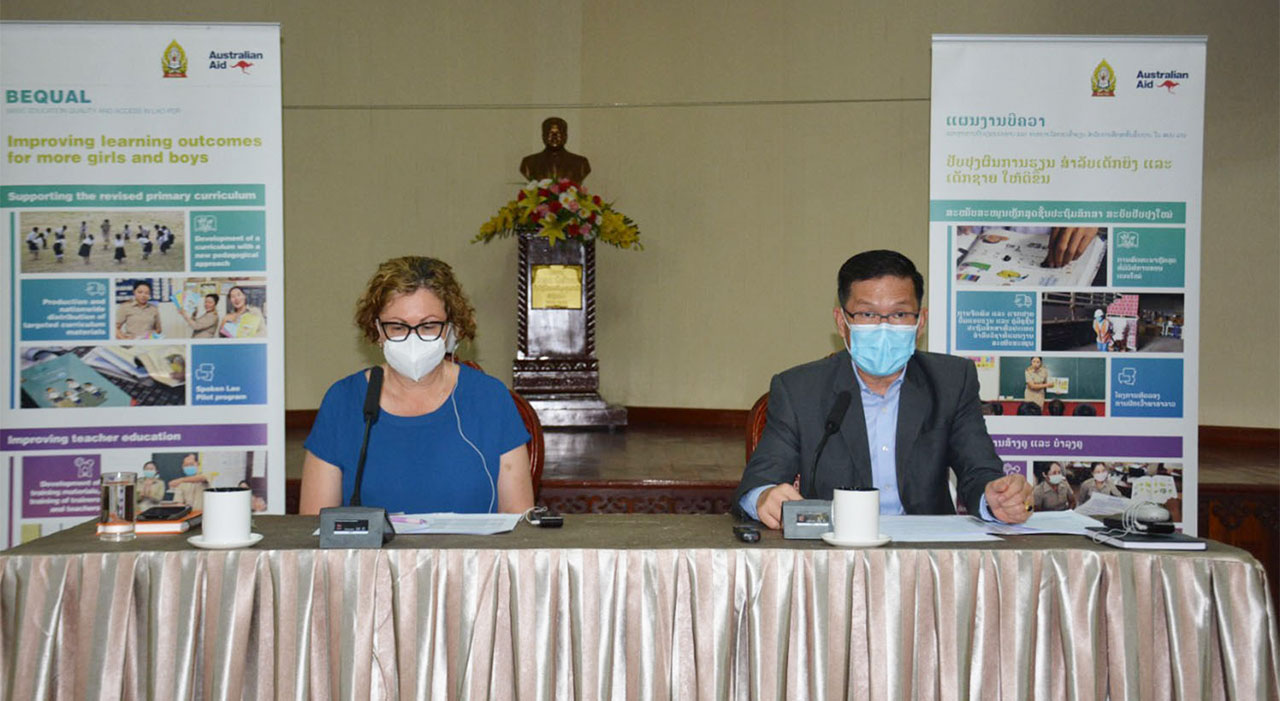
Opening of the Spoken Lao Pilot Skeholders Forum
Spoken Lao curriculum has been piloted for two years in 80 remote schools and is now being revised to be ready for roll out in additional provinces
Lao PDR is a culturally rich and diverse country, with four main ethnolinguistic groups incorporating over 50 languages. The mother-tongue of almost 40% of Lao people is a language other than Lao. The majority of students from remote and disadvantaged areas are likely to start their first year of school without knowing Lao language which is the language of instruction in schools. If students aren’t competent in the language of instruction, it is extremely challenging for them to understand the teacher, participate in activities and achieve the expected learning outcomes.
In 2019, the Ministry of Education and Sports (MoES) and Australia through the Basic Education Quality and Access program in Lao (BEQUAL) launched the Spoken Lao Pilot to test a new approach for supporting students who are not competent speakers of Lao.
On 26th May, Dr. Anouloum Vilaiphone, Deputy Director of the Research Institute of Educational Sciences (RIES), opened the two-day Spoken Lao Pilot Stakeholder Forum. About 150 participants from MoES central level (RIES, Department of Teacher Education, Department of General Education), the Australian Embassy, sub-national level (Provincial Education and Sports Services, District Education and Sports Bureaus, Teacher Training Colleges) as well as teachers and principals who participated in the pilot, development partners and implementing partners from the NGO sector joined the Forum. In order to ensure COVID-19 prevention, the participants joined online or face-to-face.
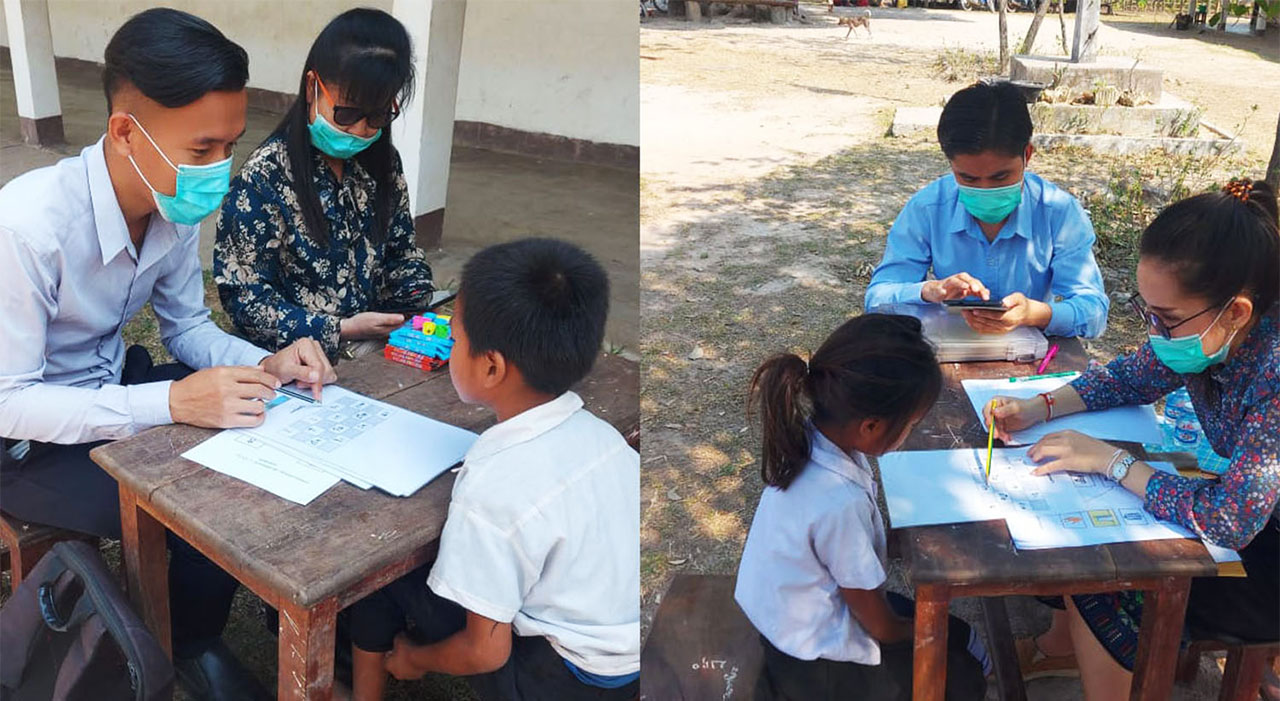
Students being assessed in one of the Spoken Lao Pilot participating schools

Spoken Lao program materials
Dr. Anoulom said “During the Forum, we will share and discuss the evaluation findings from the Spoken Lao Pilot, implementation issues and ways forward. After the Forum, RIES, with the support of Australia, will continue the revision of the program, resources and training based on your feedback and insights. It is important that all children have equal opportunities to learn; this means providing adequate Lao language learning support to non-Lao speakers during the first years of their schooling.”
The Spoken Lao pilot was implemented in 10 treatment schools and 10 control schools in each of the four provinces of Phongsaly, Bolikhamxay, Khammouane and Salavan. Grade 1 students from non-Lao speaking backgrounds received up to an additional hour of instruction a day to improve their ability to speak Lao language. Improved speaking skills build a strong language foundation, which also helps improve these students’ reading and writing skills. The participating teachers and district pedagogical advisors received specific textbooks and teacher guides developed by RIES with support from BEQUAL, and training in how to teach spoken Lao lessons. The pilot ended in June 2021 and was evaluated through baseline and endline testing of students in all control and treatment schools, as well as surveys with participating teachers and principals. The evaluation found that the Spoken Lao pilot was particularly effective in Phongsali province. A case study with interviews and focus group discussions of principals, teachers and parents / caregivers was carried out in Phongsali in February 2022 to understand better the reasons for this success. In addition, a teacher consultation workshop was held in Salavan in April to collect further qualitative feedback on the teaching and learning materials and to present proposed revisions for feedback.
Ajan Phonesiri Outhaivanh, Head of Research, Teaching Lao Language to ethnic children division, RIES, presented the results of the study at the Forum: “From the pilot, we understand better the amount and level of the content needed to suit Grade 1 students who are not native Lao speakers. The content and level of the Spoken Lao program will be adjusted to reflect our learning”.
She added “Teachers and students were keen to have access to more Lao language teaching and learning resources, such as vocabulary cards, posters, games, and songs. We are planning for the development of those additional materials to ensure that children have as much access to fun and effective Lao language learning resources as possible.”
“Teaching a new curriculum is always challenging for teachers, especially in the first year, but the challenge was increased by COVID-19 because it limited support and monitoring. Some teachers were still developing their confidence to deliver the Spoken Lao pilot. In the revised version, training and ongoing support will be expanded and will include face to face and online options. We are also revising the teacher guide to ensure that it is clear and user-friendly for teachers based on teachers’ feedback. We will also develop guidelines for education administrators as well as community awareness communication on the program.”
RIES with the support of Australia through BEQUAL will look at additional opportunities to provide learning opportunities for all teachers, on teaching students who do not speak Lao as their first language. This may include videos, learning modules, and other resources. Teachers’ continuous learning to address primary students’ learning challenges will also be addressed in Department of Teacher Education’s new Continuous Professional Development system.
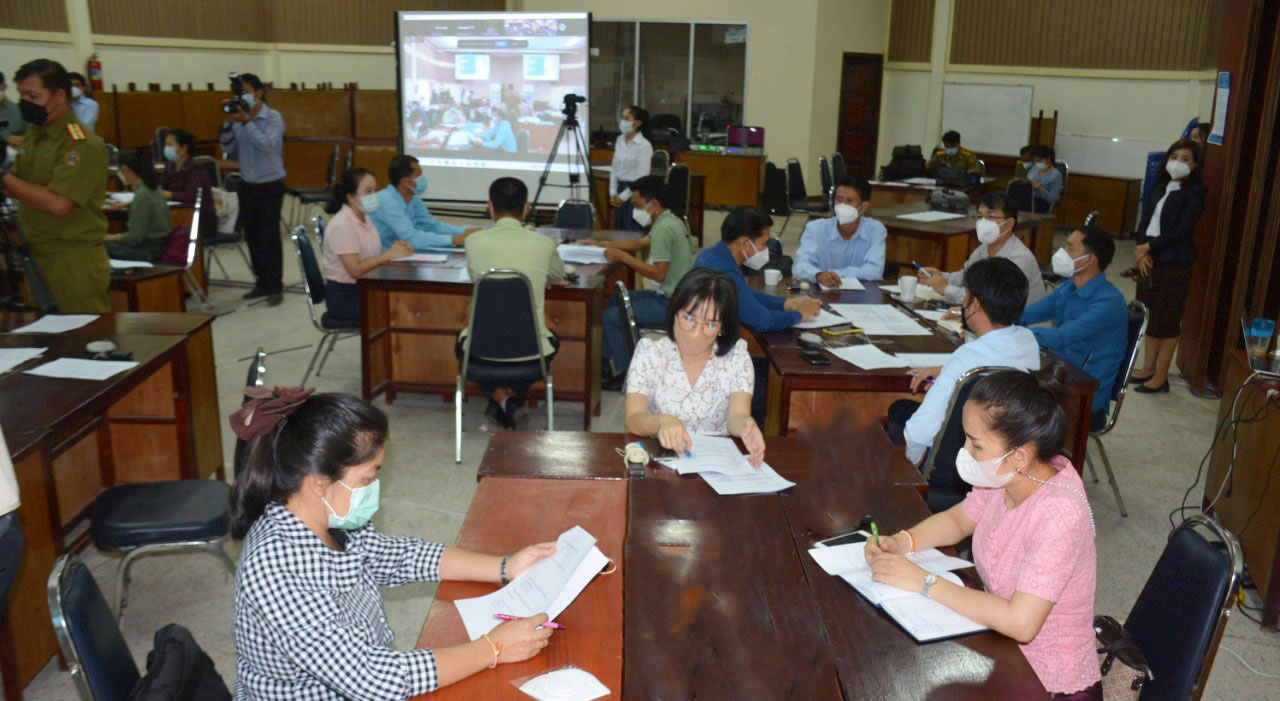
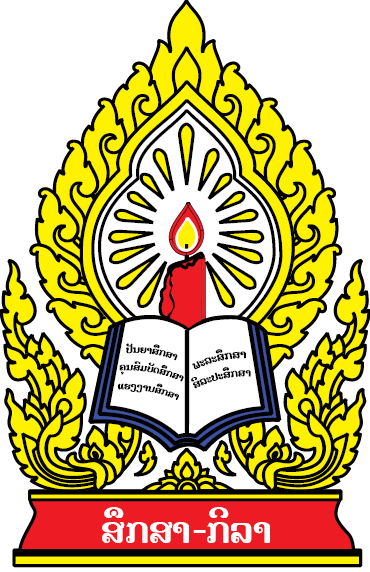
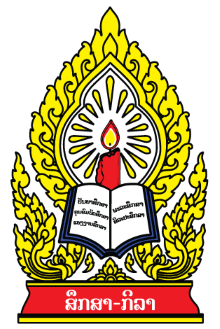


 ພາສາລາວ
ພາສາລາວ